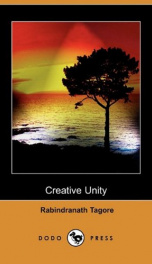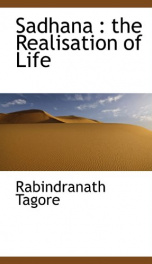Creative Unity

Rabindranath Tagore (1861-1941), also known by the sobriquet Gurudev, was a Bengali poet, Brahmo Samaj philosopher, visual artist, playwright, novelist, and composer whose works reshaped Bengali literature and music in the late 19th and early 20th centuries. A cultural icon of Bengal and India, he became Asia's first Nobel laureate when he won the 1913 Nobel Prize in Literature. A Pirali Bengali Brahmin from Calcutta, Tagore first wrote poems at age eight. He published his first substantial poetry under the pseudonym Bhanushingho (Sun Lion). Tagore's works included numerous novels, short-stories, collection of songs, dance-drama, political and personal essays. Some prominent examples are Gora (Fair-Faced) (1910), Gitanjali (Song Offerings) (1912), and Ghare-Baire (The Home and the World) (1919). His verse, short stories, and novels-many defined by rhythmic lyricism, colloquial language, meditative naturalism, and philosophical contemplation-received worldwide acclaim. His other works include The King of the Dark Chamber (1914), The Gardener (1915), Songs of Kabir (1915), Fruit-Gathering (1916), Stray Birds (1916), The Hungry Stones and Other Stories (1916) and Glimpses of Bengal (1920).
Info about the book
Author:
Series:
Unknown
ASIN:
B003YH9VLA
Rating:
4.5/5 (3)Your rating:
0/5
Languge:
English
Users who have this book
Users who want this book
What readers are saying
What do you think? Write your own comment on this book!
write a commentGenre
if you like Creative Unity try:
Other books by this author
Do you want to read a book that interests you? It’s EASY!
Create an account and send a request for reading to other users on the Webpage of the book!








